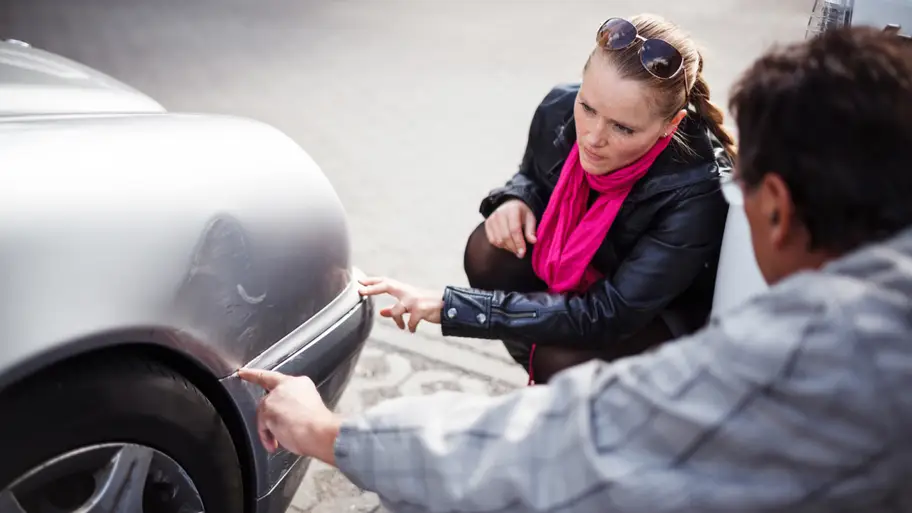Can you negotiate an insurance offer?
Car insurance companies may not mention that the offer is negotiable, but you can always make a counteroffer. You could start by asking your insurance company to explain how the adjuster arrived at the figure and then dispute any inaccuracies. You may realize when you receive your initial offer that there is additional information or context that you can provide to increase the offer amount. For instance, you may be able to provide additional proof of the extent of damages, especially if a mechanic quotes you a higher fee after a thorough review of the damage. Perhaps you initially only had an emergency room visit, but upon follow-up with your primary care doctor, realized you are going to need more medical treatment than you originally thought. Keep changes like this in mind when considering whether you have a valid case for reapproaching the insurance company with a counter.
If you do decide to make a counter offer, make sure you are presenting your argument in a professional manner. Keep a level head while preparing your argument and remember that you have every right to present your case. Do your own thorough research and gather more than one repair estimate when necessary. As you are getting treatment, make sure to collect all relevant documentation, especially any medical bills or other expenses you are incurring due to the accident. If possible, draft a written letter with your argument and include all of your back-up to avoid any verbal miscommunication.
How to handle different kinds of insurance offers
You could get an insurance offer that does not meet your expectations. If this happens, consider asking the questions you may have before reacting and then formulate a response.
When the damage is considered a total loss
If your car is damaged in an accident, you will either file a claim against the at-fault driver’s property damage liability coverage or your policy’s collision coverage. If the estimated cost of repairing your vehicle is greater than the actual cash value of your car, your car will be declared a total loss. In some states, the damage only needs to be greater than a portion of the vehicle’s value. A total loss also applies if your car is stolen, in which case you would file a claim against your comprehensive coverage.
If you disagree with the insurance adjuster’s calculation, you will need to prove that the car is worth more than your insurance company’s estimate. An example of a car having a higher value might include having previously made improvements to your vehicle. Otherwise, your insurance company will pay you or your leasing company the market value of your car, minus depreciation. This figure is often different from the Kelley Blue Book value and sometimes can be less than the total amount you still owe on your car. If you have a loan or lease on a newer vehicle, you may want to consider gap insurance.
When the offer is lower than you expected
Although financial responsibility after an accident will vary depending on your state’s insurance laws and the particulars of the accident, keep in mind that if your insurance company is the one paying out the claim, you must have the right coverage types in order to receive a payout. For example, if your car is damaged in an accident you caused, you’ll need collision coverage to pay for the damages. If you only carry minimum coverage car insurance, you will need to pay for damage to your car on your own. Additionally, you’ll need to consider your coverage limits; if the damage exceeds your coverage limits, you will be responsible for paying the difference.
If you were injured in the accident, make sure your offer includes the cost of your medical bills. Depending on the type of coverage, you may also be entitled to compensation to cover lost wages. Collecting all of your medical bills is an easy way to prove medical costs – just make sure they are relevant to the accident. To prove your lost wages, a letter from your employer itemizing your missed time and compensation along with a medical note from your doctor confirming your need to miss work will help substantiate your claim. If you live in a no-fault state, you will most likely have personal injury protection (PIP) that will cover your own medical costs and lost wages, regardless of who caused the accident. If you live in an at-fault state, medical bills are generally covered by the insurance company of whomever caused the accident, but may not include coverage for lost wages.
When you get an offer from your insurance company, you should review it for accuracy. If your car was damaged, consider getting an independent estimate of the repair cost. You may even want to get estimates from multiple mechanics so you have more information to provide to the insurance company.
After you gather your additional evidence, submit a written counter offer to the insurance company asking for a higher claims payout. If your insurance company does not comply and you still believe the offer is unfair, you may want to hire a lawyer.
When the adjuster uses the “betterment clause”
Most car insurance policies include a betterment clause that requires the policyholder to pay a fee if the repairs to the vehicle improve its condition when compared to before the accident. For example, if a mechanic uses new parts to repair an old car and therefore adds to its value, you might be required to pay a betterment charge.
If you want to reject your insurance company’s offer because of a betterment charge, you will need to prove that the necessary repairs do not add value to your vehicle. It can help to provide a statement from your mechanic or another expert when submitting your counteroffer.
How a settlement works
After negotiations, you and your insurance provider will agree to the settlement in writing. When you receive your payout less your deductible, it is important to understand what to do with your car insurance claim check. Depending on your insurer and your state, you may be required to use the funds for the intended purpose as defined in the payout. In some situations, you may be able to cash the check and utilize the funds at your own discretion. Be sure you understand what you are legally allowed to do with the money before spending it.
Your insurance company might make out the check to you and the repair shop, in which case you would need to sign the check over to the mechanic. Otherwise, your insurer might require that you show proof of repair. If your car is financed, your finance company may either be included on the check as a payee or have a say in where the vehicle is repaired.





